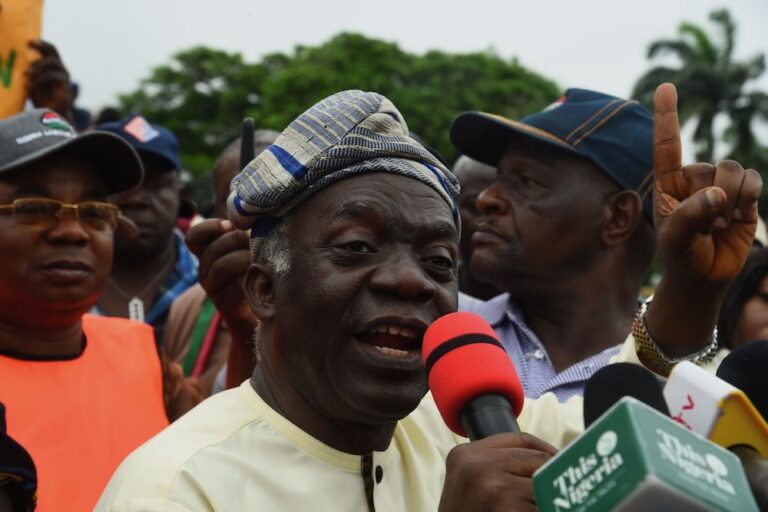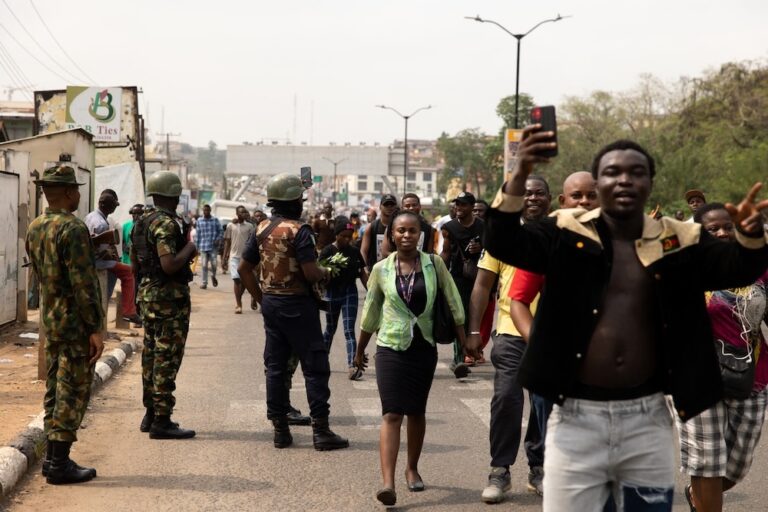(RSF/IFEX) – On 30 June and 1 July 2003, police in the capital, Abuja, arrested two journalists and beat up three others during union-led street protests against fuel price increases of more than 50 percent. In a letter to Police Inspector-General Tafa Balogun calling for a full investigation and the punishment of those responsible, RSF […]
(RSF/IFEX) – On 30 June and 1 July 2003, police in the capital, Abuja, arrested two journalists and beat up three others during union-led street protests against fuel price increases of more than 50 percent.
In a letter to Police Inspector-General Tafa Balogun calling for a full investigation and the punishment of those responsible, RSF said, “It is not normal for journalists covering demonstrations to be targeted in this fashion by police.”
The organisation acknowledged that press freedom had improved significantly in Nigeria in recent years, but said this week’s police violence showed that some police officers still felt free to think and act as if they would never be punished. “The authorities have the duty to take measures to put an end to this feeling of impunity,” RSF added.
During a 30 June demonstration in Abuja organised by the National Labour Congress (NLC, the main labour federation), Funmi Komolafe, a journalist with “The Vanguard” newspaper, and Ola Awoniyi, a local correspondent for Agence France-Presse, were detained and taken to police regional headquarters. They were held for more than an hour before being released.
Komolafe and Rotimi Ajayi, also with “The Vanguard”, and George Osodi, an Associated Press (AP) photographer, were hit with rifle butts and kicked by police during another demonstration called by the NLC and other unions on 1 July, which drew several thousand participants. Osodi sustained extensive bruising and his equipment was broken. When reached by AP, a senior police official refused to comment on the incident, but asked the three journalists to provide detailed statements.


